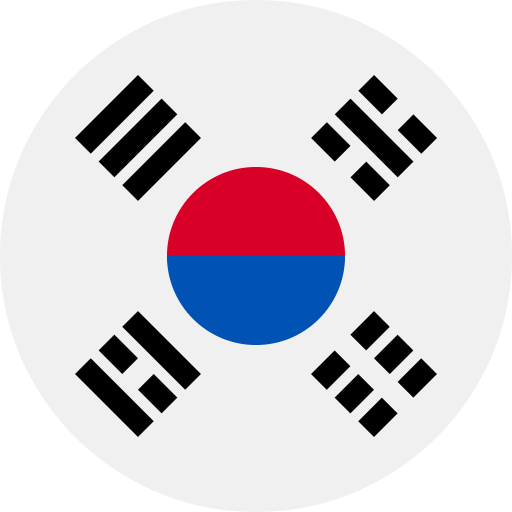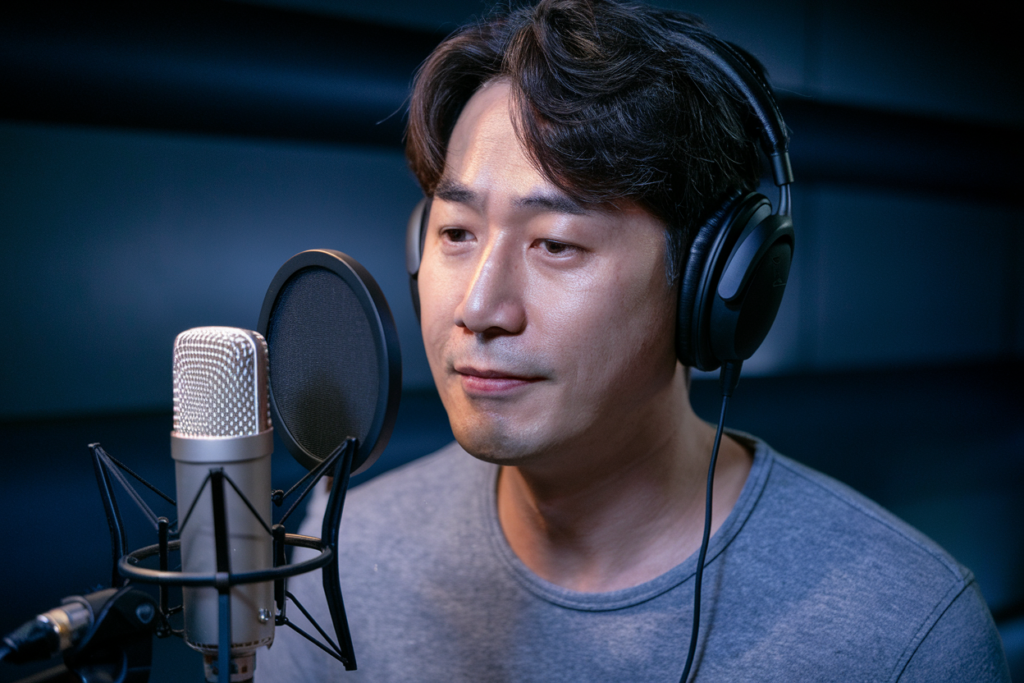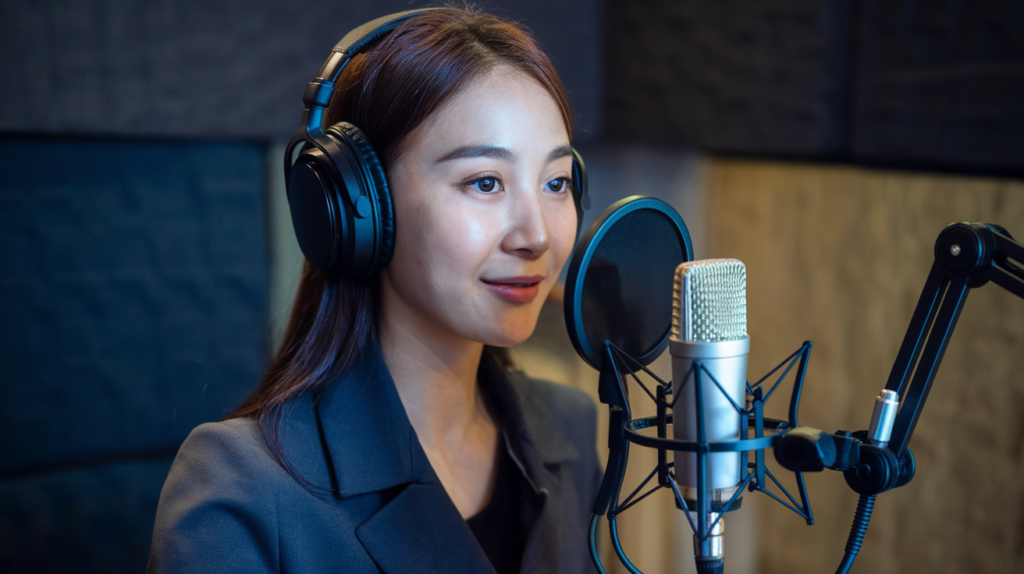Key Takeaways
- Language Proficiency is Essential: Mastering Korean pronunciation, intonation, and rhythm is crucial for delivering authentic voiceovers and avoiding mispronunciations.
- Cultural Nuances Matter: Understanding local expressions, idioms, and dialects enhances relatability and engagement with the target audience.
- Technical Quality is Key: High-quality recording equipment and professional-grade audio settings are vital for producing clear sound without interference.
- Invest in Training: Continuous education through courses and workshops can significantly improve your skills as a voice artist in the Korean language.
- Utilize Advanced Technology: Leveraging software designed for audio editing helps refine recordings, while collaborating with sound engineers ensures optimal production quality.
- Stay Adaptable to Industry Trends: Embrace ongoing education and collaboration to remain competitive in the evolving landscape of the Korean voiceover industry.
Ever tried recording a Korean voiceover and hit a wall? You’re not alone. Many face unexpected obstacles that can turn what should be a smooth process into a frustrating experience. From language nuances to technical challenges, understanding these hurdles is crucial for delivering high-quality results.
Overview of Korean Voiceovers
Korean voiceovers present unique characteristics that set them apart from other languages. The intricacies of the Korean language, including its tonal variations and cultural nuances, play a significant role in delivering impactful voice work. When you engage with a voice talent who specializes in Korean, you’re tapping into their understanding of these elements.
Voice actors must navigate specific phonetic challenges inherent to Korean. Sounds can differ significantly from English or other languages, requiring precise articulation for authenticity. A skilled voice artist knows how to emphasize these sounds without losing clarity.
Cultural context also matters in Korean voiceovers. You might notice that certain expressions and idioms resonate differently depending on the audience’s background. Understanding local dialects can enhance relatability and engagement, making it essential for any project aiming at a Korean-speaking demographic.
Technical aspects shouldn’t be overlooked either. Recording quality is crucial; background noise or poor acoustics can detract from even the best performances. Collaborating with experienced professionals ensures high-quality production standards that reflect positively on your brand.
Recognizing the distinctiveness of Korean voiceovers helps you appreciate the artistry involved in creating compelling audio content tailored for this vibrant market.
Common Obstacles in Recording Korean Voiceovers
Recording Korean voiceovers presents unique challenges that require attention to detail. Understanding these obstacles helps you achieve high-quality results.
Language Proficiency
Language proficiency plays a crucial role in delivering authentic voiceovers. Mastering the nuances of Korean pronunciation, intonation, and rhythm is essential for any voice actor. Many find that certain sounds or syllables don’t exist in their native languages, leading to mispronunciations that detract from the overall quality. Training with experienced voice artists can enhance your skills and ensure clarity and emotional impact in your recordings.
Cultural Nuances
Cultural nuances significantly influence how messages are conveyed through voiceovers. Expressions, idioms, and humor differ across cultures; thus, what resonates with one audience might fall flat with another. A skilled voice talent understands these subtleties and adapts their delivery accordingly. Incorporating local dialects or regional accents adds authenticity and relatability to your project, making it more appealing to the target audience.
Technical Challenges
Technical challenges often arise during the recording process that can affect audio quality. Factors like background noise, microphone placement, and equipment settings can make a huge difference in sound clarity. Professional-grade recording equipment is vital for capturing high-quality audio without distortion or interference. Collaborating with knowledgeable sound engineers ensures optimal conditions for your sessions and enhances the final output’s professionalism.
By addressing language proficiency, cultural nuances, and technical challenges directly related to Korean voiceovers, you set yourself up for success in creating compelling audio content tailored to your audience’s needs.
Strategies to Overcome Recording Obstacles
Recording a Korean voiceover presents unique challenges, but implementing effective strategies can significantly ease the process. Here are some methods to help you navigate those hurdles.
Training and Education
Investing in training enhances your skills as a voice artist. Consider enrolling in courses focused on Korean pronunciation, intonation, and rhythm. These classes offer valuable insights into the language’s intricacies, ensuring your delivery resonates with authenticity. Participating in workshops led by experienced professionals provides hands-on experience and constructive feedback. You’ll gain practical knowledge that translates directly to improved performance during recordings.
Regular practice is crucial too. Record yourself reading various scripts in Korean to identify areas for improvement. Listen back critically—this reflection helps pinpoint specific phonetic challenges you may face as a voice actor.
Utilizing Technology
Leveraging technology streamlines the recording process and mitigates technical obstacles. High-quality microphones capture clear sound, making your voiceover more engaging for listeners. Invest in professional-grade equipment tailored for vocal recordings; this investment pays off through enhanced audio quality.
Additionally, using software designed for audio editing can refine your recordings further. Programs like digital audio workstations (DAWs) allow you to adjust tonal balance and eliminate unwanted noise effectively.
Consider collaborating with sound engineers who specialize in voiceovers if you’re not comfortable handling technical aspects alone. Their expertise ensures optimal recording settings and post-production adjustments that elevate your final product’s overall quality.
Focusing on education while utilizing advanced technology sets you up for success when navigating the complexities of Korean voiceovers.
The Future of Korean Voiceover Industry
The future of the Korean voiceover industry looks promising, with growth driven by technology and global demand. As streaming services expand, the need for high-quality voiceovers increases. This demand creates opportunities for talented voice actors to showcase their skills in various media formats.
Emerging trends highlight the importance of multilingual content. As audiences crave diverse experiences, being versatile as a voice artist becomes crucial. You can tap into this trend by mastering multiple languages or dialects, enhancing your appeal in an increasingly interconnected market.
Technological advancements also shape the landscape of voiceovers. Tools like artificial intelligence and automated recording software streamline production but don’t replace the artistry required for impactful storytelling. Human touch remains essential; while tech can assist, it’s your unique expression that brings characters to life.
Moreover, cultural relevance plays a significant role in successful projects. Understanding local customs and idioms not only enriches performances but also resonates with audiences on a deeper level. As you navigate these cultural nuances, consider engaging with local experts or organizations to refine your knowledge.
Collaboration within the industry is another key aspect shaping its future. By partnering with sound engineers and other professionals, you enhance project quality and ensure optimal results from start to finish. Building these connections fosters creativity and innovation in your work.
Lastly, ongoing education is vital for staying competitive as a voice actor in Korea’s evolving market. Participating in workshops or training sessions helps you refine your skills while learning new techniques suited for modern demands.
In sum, embracing change and continually adapting will set you apart in the vibrant world of Korean voiceovers. Your commitment to excellence ensures that you’ll thrive amidst challenges while contributing positively to this dynamic industry.
Conclusion
Navigating the obstacles in recording Korean voiceovers can be challenging but it’s essential for achieving high-quality results. By honing your language skills and understanding cultural nuances, you can enhance your performances significantly.
Investing in training and utilizing advanced technology will help streamline your process and improve audio clarity. Collaborating with experienced professionals ensures that you tackle technical challenges effectively while maintaining authenticity in your delivery.
As the demand for Korean voiceovers continues to grow, staying adaptable and open to learning will position you for success in this evolving industry. Embrace these challenges as opportunities to refine your craft and connect with audiences on a deeper level.
Frequently Asked Questions
What are the common challenges when recording Korean voiceovers?
Many face challenges like language nuances, tonal variations, and technical issues. These can complicate recording quality and authenticity, making it essential to understand and tackle these hurdles for better results.
Why is cultural context important in Korean voiceovers?
Cultural context shapes how expressions and idioms resonate with different audiences. Understanding local dialects enhances relatability and ensures that the message is delivered effectively to the target demographic.
How can voice actors improve their Korean pronunciation?
Voice actors can enhance their skills by enrolling in courses focused on Korean pronunciation, participating in workshops for hands-on experience, and regularly practicing by recording themselves for self-assessment.
What technical aspects should be considered for high-quality recordings?
Investing in professional-grade equipment like high-quality microphones and audio editing software is crucial. Collaborating with experienced sound engineers also helps ensure optimal recording settings and post-production quality.
What trends are shaping the future of the Korean voiceover industry?
The increasing demand from streaming services drives growth, emphasizing multilingual content. Technological advancements like AI influence production but maintaining a human touch remains vital for storytelling effectiveness.
How can technology assist in the voiceover process?
Technology streamlines recording by providing tools like advanced microphones and editing software that enhance sound clarity. It also facilitates collaboration with sound engineers to achieve professional-grade audio quality during production.







